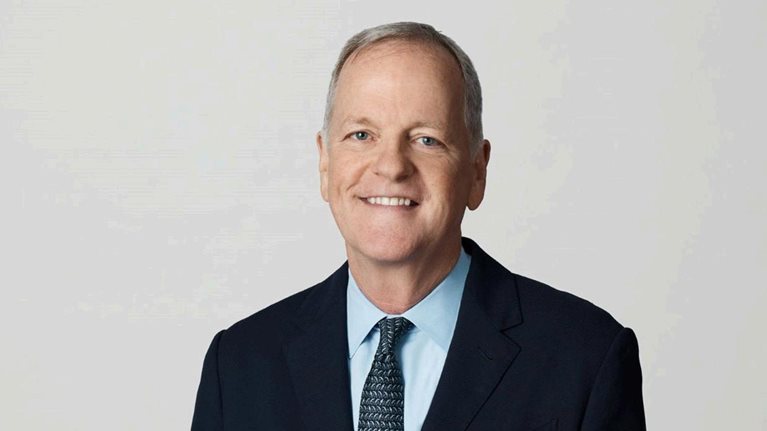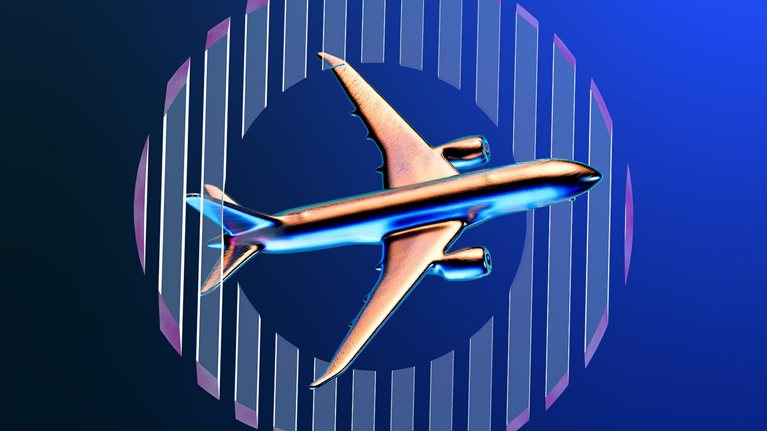Ed Bastian is one of the most respected CEOs in the world. In his decade at the helm of the world’s biggest airline, he has pushed a drive for excellence that has solidified Delta’s position as a premier brand and a leader in its industry. He led Delta through the pandemic without furloughing employees—just one example of a unique managing style that resonates across the 100,000-person company.
Bastian recently sat down with McKinsey Senior Partner Eric Kutcher to talk about AI, leading through geopolitical uncertainty, reducing flight cancellations, and what it’s like to have 12 bosses. This is an edited transcript of their conversation.
Eric Kutcher: Delta turned 100 this year, which is an incredible feat. What does it mean to turn 100 as an institution?
Ed Bastian: We’re the first US airline to have turned 100, which is remarkable when you think about our industry and all the challenges, all the ups and downs, the hundreds of airlines that didn’t make it. I think of the courage and the innovation it took to get here. People talk about innovation and technology as if Silicon Valley types are the true innovators. With all due respect, I don’t buy any of that.
The true innovators are the people who got us here and the courage it took to build an industry. A century ago, we had one crop duster with one person. Today, we are the world’s largest airline, operating planes flying 200 million people around the world safely and reliably. That’s innovation.
Eric Kutcher: What do you see as you look at a world facing considerable uncertainty?
Subscribe to the Inside the Strategy Room podcast
Ed Bastian: Geopolitics are front and center. You can’t avoid it. The world order has changed. And that’s going to affect all of us as we think about the future.
In our case, international is our future. About two-thirds of our revenues are in the US. Only one in five people in the world has ever stepped foot on an airplane. That means we’re not a mature industry. The opportunity’s all over the world. It’s in the Middle East, in Southeast Asia and India, in Africa—all over the world. There’s tremendous opportunity.
To grasp that, despite the uncertainty, you must have confidence that you’ll get through. You will have to course correct, so it’s never more important to have a clear vision of where you’re going and a clear sense of who you are as a company. The companies that get in trouble at times like this are the ones that get too caught up in the storm.
During the pandemic, our team maintained that unrelinquished focus on where we were going despite the fact that we had no clue how we were going to get there. That was a dark moment. We went from having our greatest year ever in 2019 to having no revenues three months later. Today? Today’s not as dark. We need to continue having that focus on where we want to go.
Eric Kutcher: Delta stirred up a controversy when you announced that AI would manage ticket pricing. Has that affected the way you think of using AI?
Ed Bastian: This recent storm on AI pricing started when we made a comment on a recent earnings call that we were starting to learn about AI pricing, starting to experiment in maybe 3 percent or 5 percent of some of our markets. And the flashing lights went on: “They’re trying to offer Eric a different price than they were offering John over here, because they know Eric can afford it; they know what Eric likes.” And all this insane stuff was being reported as if we said it.
Of course, the industry has been doing dynamic pricing for years, all of it run by machines. We have literally millions of price points out there all the time. We sell 300 days out with 5,000 flights a day and all different inventory buckets, products, and services. AI can help us try to do this more efficiently. We have hundreds and hundreds of people trying to manage the machines. There’s a better way to do that.
We like to refer to AI not as “artificial intelligence” but as “augmented intelligence.” If more people started talking about it as augmented intelligence, it would take away a lot of the fear and trepidation.
The reason I say “augmented” is that it will help our people do a better job serving our customers. We’re a service business. People want to be served by humans. AI will help our reservation agents get better answers to you quicker. It’s going to be able to figure things out, sort through data to find a great upgrade opportunity, or whatever it is that will make your experience better on Delta. It “augments” the intelligence of our people.
At the end of the day, AI is not going to cause us to lose employees. If we are successful with AI, we’ll gain employees. And we’ll be able to grow revenues and drive efficiency into a lot of other parts of our business.
Eric Kutcher: Over the years, you’ve positioned Delta as a premium airline. How did you manage that?
Ed Bastian: The airline industry is a really tough industry. One reason is that it’s been seen very much as a commodity. When I joined the industry almost 30 years ago, we’d look at the top reasons, the purchase drivers, and price was always number one. Utility was a distant second. And third was loyalty, whatever that meant.
Thirty years later, there’s no question that the number-one reason people buy Delta is because it’s Delta, and people want the service, reliability, and services that our great people provide. They’re willing to pay a premium for Delta. On average, people pay a 20 percent premium to be on Delta versus the industry at large.
That took years to develop. We had to rebuild the infrastructure and the reliability and the experience. It took a lot of technology, like predictive-maintenance technologies and engineering support. I remember the first year after we bought Northwest 17 years ago, we had, I don’t know, 6,000 cancellations for maintenance alone. That was three days of our year canceled because of maintenance. And we decided, “The first thing we’ve got to do is cancel cancellations.” And we’ve effectively done that. The pandemic has messed things up for a bit, but in 2019, the last year before the pandemic, that 6,000 number was down to 60. We’ve canceled 99 percent of the cancellations.
Eric Kutcher: How do you get 100,000 people to believe in this vision to create a premium airline?
Ed Bastian: First, we make it clear that we care about our people. And caring about them doesn’t mean that you tell them this or that and that you give them a pay raise from time to time. Caring about them means that they have the tools and the technology to win for themselves.
There’s nothing our flight attendants or pilots or airport agents hate worse than disrupted schedules, because they’re on the front lines. They’re the ones who must explain to you what happened. When you tell them, “The best way we can care for you is by making sure you can do the very best job to show for your customer,” that resonates. Our people know we care, and they see the investments in where we’re going.
The second thing we did is because of what we went through 20 years ago. It was September 14, 2005. We filed for bankruptcy in a courtroom at the Southern District of New York. I was the CFO, and I had to declare defeat. It was a humbling moment.
But we made the right call with our employees, who had to endure large pay cuts, furlough, and plenty of other painful stuff. I promised them that when we got through this and were once again profitable, they’d get 15 percent of the profits.
This wasn’t something that we negotiated. We just said we’re going to do it. And we’ve maintained the practice. Over the last decade, we’ve paid close to $13 billion to our frontline employees, including pilots. So, when they see me, their question is always, “What can we do to be better? What can I do to be more efficient? How can I help the company? Because I have a financial interest.” And every year we celebrate loudly on our Profit-Sharing Day. We do it on Valentine’s Day every year. That’s kind of quirky, but it’s the best day for Delta.
When tough times come, they are even more loyal to you, like during the pandemic. One-third of my costs are labor. We got 50 percent smaller in three months. But we got through the pandemic without furloughing a single employee. I don’t know another airline in the world that did that. I went to our people and said, “We’ve got to get smaller. We’ve done furloughs in the past, and I just don’t want to do that.” And 50 percent of my employees volunteered to take up to two years off without pay. I kept their benefits in place, told them it was a great time to travel, and gave them [two free passes] for travel anywhere they wanted. And obviously, we weren’t profitable during that time, so we weren’t paying any profit sharing. Loyalty buffers you during tough times.
Eric Kutcher: Delta’s been on quite a journey since the bankruptcy 20 years ago. How do you bring the board along and get the most value out of them? How do you get them to help you while also making sure they’re checking a little bit on what you’re planning to do?
Ed Bastian: Once you become CEO, you realize that for all those years growing up, you’ve grown accustomed to having a boss. Now everybody thinks you’re the boss. But the reality is I’ve still got bosses, 12 of them, all of whom have different opinions, different thoughts, and different ideas. In the room, there are some different agendas, and one of your jobs is to spend time with your board members, making certain you really hear and listen to them.
And as a new CEO, during the first handful of years, you’re never sure—“Did they make the right decision in me?” There’s always a bit of doubt that we all have, and the pressure feels enormous. They selected you, so they have a vested interest, which is good. But you really do feel pressure to perform for them.
I know I’ve been doing a lot of talking, but I really try to listen a lot. You have to listen to your board. It’s more important to understand where they’re at than to tell them why you’re right.
The chair can help with that. That relationship with your chair or your lead director is vital.
We talk a lot about diversity on the board—in background and skill sets. It’s important. I know we’re in a world where DEI is under assault. It’s just that we’re better when surrounded by people who are different from you. You hear different thoughts and get different points of view.
Our directors learn as they go. I stopped doing off-sites for board members. Instead, I invite them to learn about and experience the company in their own way. They’re always on our product, so they experience that. But I tell them, “Just make yourself at home. Spend time with my leaders. Go out in the operations and whatnot. Whenever you want. And you don’t have to give me a report. Just learn the business.”
Boards are always trying to figure out if they have the real story, or if there’s something they’re missing. When you open the door and embrace it rather than being defensive, it’s different. Board members tell me that this is the most unique thing about being on the Delta board. But it takes confidence for you to do that.
Eric Kutcher: So, you had the confidence to do that. But you also described having a bit of imposter syndrome when you started in the CEO job. Do you ever shed that imposter syndrome? How do you navigate past it to true confidence?
Ed Bastian: It definitely gets better. You get more comfortable. Quite honestly, if I still had imposter syndrome after almost ten years in the role, I am an impostor. But starting with it is natural. There are all those expectations.
But then you realize that the people are behind you, and that they want you to succeed even more than you want to, and it feels better as you go. You don’t have to prove yourself at every step with the partners or investors or your people.
You become a leader when trouble hits. In challenging times, you may tend to pull in a bit. You want to close the door a little bit and figure this out. You don’t want to expose yourself.
But one of the most important things I did during the pandemic was speak to tens of thousands of our employees every week. We had a great virtual network that was already established, and I just took them through the journey and let them know what I knew and what I didn’t know.
When you are the leader, you are expected to give answers. They have questions and you have answers. If you say, “I don’t know,” that doesn’t necessarily inspire confidence. But it’s so important when you are honest. Saying “I don’t know” is one of the hardest things a leader can do.
Many CEOs will try to talk around this. They’ll hope somebody changes the topic. But vulnerability builds trust and courage. Jim Collins, the author of Good to Great, points out that no one wants to follow someone who has all the answers. They want to follow someone who they feel they’re going to learn with and learn from, instead of being told what to do. A core of humility builds trust.


